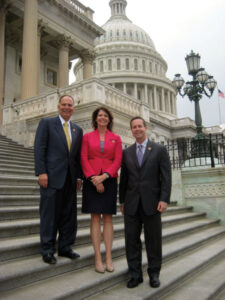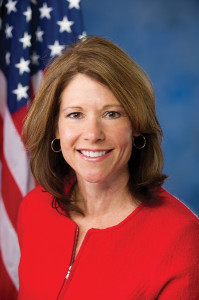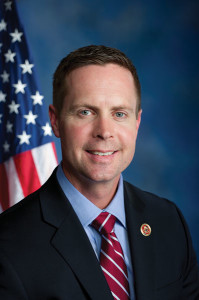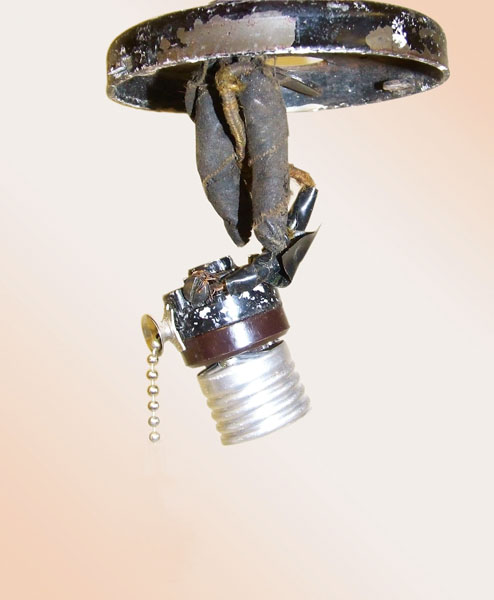 Our state and nation are facing very tough issues that require the good faith effort of our leaders and a willingness to work across the aisle. Illinois’ freshmen Representatives, William Enyart, Cheri Bustos and Rodney Davis, who together represent more than 40 counties, all emphasized the importance of creating jobs for their districts and bipartisanship in Congress.
Our state and nation are facing very tough issues that require the good faith effort of our leaders and a willingness to work across the aisle. Illinois’ freshmen Representatives, William Enyart, Cheri Bustos and Rodney Davis, who together represent more than 40 counties, all emphasized the importance of creating jobs for their districts and bipartisanship in Congress.
 Congresswoman Cheri Bustos (D-17, East Moline)
Congresswoman Cheri Bustos (D-17, East Moline)
1. What motivated you to run for Congress?
As a longtime investigative journalist, I uncovered numerous stories of government corruption and saw firsthand the injustices that many faced. During my time as a city council member in my hometown, I heard time and time again that people across our region were sick and tired of politicians in Washington putting politics above working together for the people they were supposed to represent. I ran for Congress to do right by the middle class families of our region and to work across the aisle to fight for job creation and economic development, to protect Social Security and Medicare, and to stand up for our veterans.
2. How did your background prepare you for serving in Congress?
As a young girl, public service was always an important part of the life of my family. After working as an investigative journalist uncovering stories of corruption and greed, I was humbled to continue this tradition of public service by serving on the East Moline City Council. Giving back to my community has always been a top priority of mine and it continues to guide my work today as a new member of Congress representing the 17th District of Illinois.
3. What are your top three legislative issues?
My top priorities are creating good-paying jobs that can’t be outsourced and growing our local economy, protecting Social Security and Medicare while reducing the deficit in a balanced way, and making sure we keep our promises to all our brave veterans.
4. What are the greatest needs of your Congressional district?
The most important need I hear about from Illinois families across my district, is for good-paying jobs that can’t be outsourced. The work ethic of the people of my district is second to none, and if given the chance our workers can outcompete workers anywhere in the world. I’ll keep fighting to make sure our region’s economy is strong into the future.
5. What can you do to create a more bipartisan climate in Congress?
After the election, and due to the concerns I heard about from people across my district about the lack of bipartisanship in Washington, I called or met with all the new freshman members of Congress, both Republicans and Democrats, to introduce myself and to tell them I wanted to work with them on the important issues facing our constituents. I also joined the bipartisan group No Labels, and was named a “Congressional Problem Solver,” because of my commitment to working across the aisle. I’ll continue to focus on bipartisanship and working together to address the issues facing the people of Illinois in the weeks and months to come.
 Congressman Rodney Davis (R-13, Taylorville)
Congressman Rodney Davis (R-13, Taylorville)
1. What motivated you to run for Congress?
I ran for Congress because I’ve seen how the decisions being made in government can affect our everyday lives. My parents, small business owners, taught me the importance of public service and that we must get involved if we truly want to make a difference. I also ran for Congress because I find it wrong and immoral for our generation to saddle our kids and grandkids with trillions of dollars in debt. I cannot, in good conscience, leave my kids a country that is in worse shape than what my generation inherited.
2. How did your background prepare you for serving in Congress?
For 16 years I worked as the Projects Director for Congressman John Shimkus. In that time I became intimately familiar with the role the federal government plays in our communities, where it can help and where it can hurt.
3. What are your top three legislative issues?
My top three legislative issues are passing a long-term farm bill, a long-term transportation bill, and reducing spending to attack the national debt.
4. What are the greatest needs of your Congressional district?
The greatest needs in the 13th Congressional District are achieving certainty in the agriculture and transportation sectors through the passage of long-term farm and transportation bills.
5. What can you do to create a more bipartisan climate in Congress?
The biggest surprise for me is how normal members of Congress are, and that it’s not as hyper-partisan as it may appear in the news media. We have to reach across the aisle and work together, it’s what we were sent to Washington to do and it’s how we show leadership. I routinely meet with Democratic colleagues on how we can partner on legislation to move our country forward.
 Congressman William Enyart (D-12, Belleville)
Congressman William Enyart (D-12, Belleville)
1. What motivated you to run for Congress?
A sense of duty to Southern Illinois motivated me. I felt strongly that we needed leadership to help Southern Illinois grow and prosper. I hadn’t planned on seeking office and came to the campaign at the 11th hour. My party’s nominee had to leave the race due to health concerns, and I felt that someone with strong credentials needed to step up quickly and fill the void. After some soul-searching with my family, I retired from the military and took on this new mission.
2. How did your background prepare you for serving in Congress?
I think my background is unique in Congress right now. I didn’t come up through the traditional manner of holding lower-level elected offices. Having served in two of our armed forces (Air Force and Army), then commanding thousands of Illinois National Guard troops, I have a different perspective on service and leadership. I’m the only current member of Congress to have achieved the rank of general. When I sit in an Armed Services Committee hearing and question the military brass about wasting money, they can’t easily duck the question. I bring a deeply felt commitment for our troops and veterans to DC.
3. What are your top three legislative issues?
Jobs, jobs and jobs. Retaining and creating employment in my district is the top priority for me and most of my constituents. I’m very interested in workforce development, because we have the manpower and work ethic in Southern Illinois. So I’m focused on getting our people trained for the demands that exist. Many of the other issues I deal with directly relate to jobs. If I’m ensuring the military budget is efficient, it’s because we need to protect the jobs and paychecks at Scott Air Force Base. If I’m talking about levees or locks and dams on the Mississippi, it’s because the river is an economic lifeline for the farms, chemical companies and coal mines for my district. It all comes back to jobs.
4. What are the greatest needs of your Congressional district?
The challenges seem to come at us on all sides. A few of my counties are at the top of the state’s unemployment list. To add insult to injury, the state has been closing facilities in counties that are already hard-pressed for good employment. Infrastructure is at the top of the list. The Mississippi River is an integral part of the nation’s transportation network, and it’s a continuous challenge. Already this year we’ve gone from drought to flood along the river. The levee system is in need of improvement in much of the district. Our transportation network in this country is aging, and we need to make sure our highways, rail lines, bridges, waterways and airports are prepared for the future. Many of our communities are cash-strapped and in need of funds for basic services like water towers, sewer lines and fire trucks. I want to ensure the decisions made in Congress address these needs, but too many outcomes – like inaction on the Farm Bill – only make things worse.
5. What can you do to create a more bipartisan climate in Congress?
I’m a problem solver, and I’m interested in solutions and action. I think, by and large, the freshmen in Congress are more interested in solving problems than scoring political points. We’re not afraid to talk to each other or work together across the aisle whether it’s a matter of national policy or local priorities. For example, Rep. Davis and I have already been working together on improving the locks and dams along the Mississippi River, because it makes sense for our districts. Another example – I offered an amendment to the National Defense Authorization Act to eliminate the waste and duplication in the military’s uniforms policy. The Republican-controlled committee voted to include the amendment, and it was the only one offered by a Democrat to pass. It goes to show that a good idea doesn’t always have a partisan bent.







